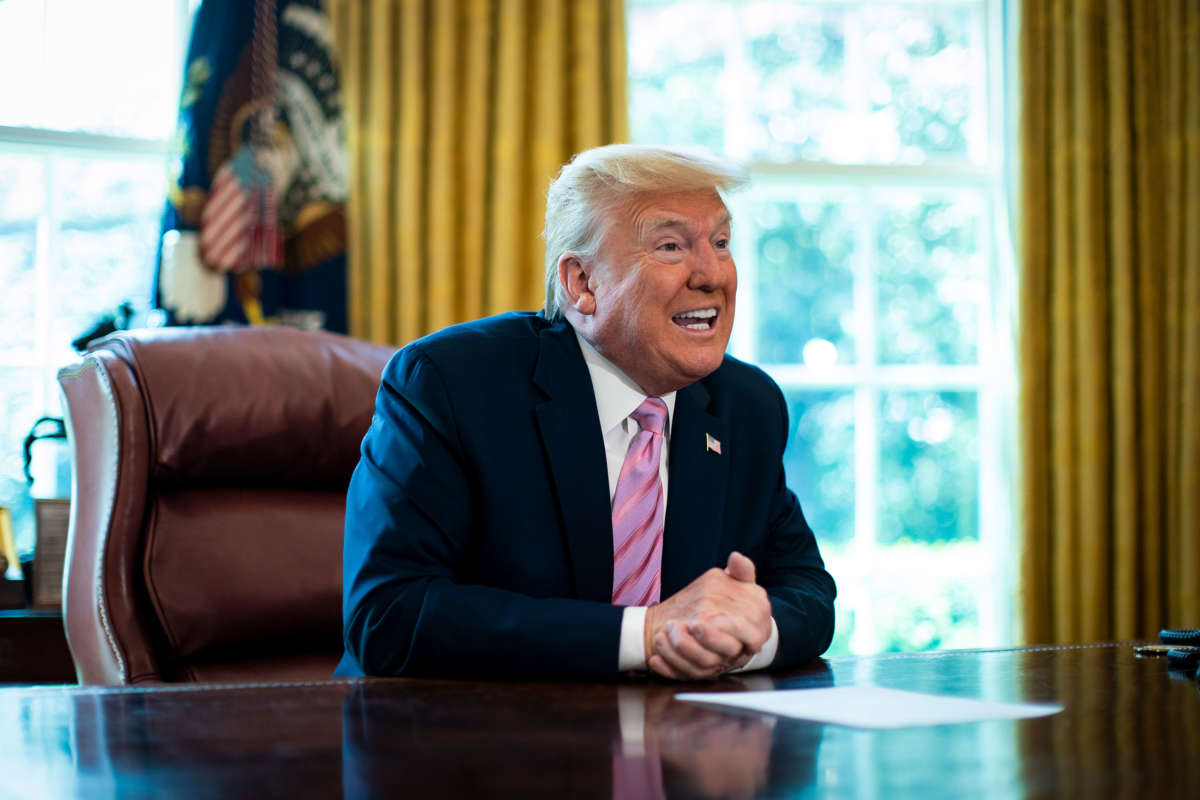President Donald Trump issued out a pair of tweets on Monday morning in which he asserted that he alone, and not state governors, had the authority to end shelter-in-place orders to allow all businesses and services to reopen.
Trump blamed the news media for trying to create “conflict and confusion” by claiming that the authority to “open up the states” lies with governors rather than the president.
“Let it be fully understood that this is incorrect,” Trump insisted. “It is the decision of the President, and for many good reasons.”
Trump tried to send out assurances that his tweets by no means meant that he and governors weren’t working together.
“A decision by me, in conjunction with the Governors and input from others, will be made shortly!” he added.
….It is the decision of the President, and for many good reasons. With that being said, the Administration and I are working closely with the Governors, and this will continue. A decision by me, in conjunction with the Governors and input from others, will be made shortly!
— Donald J. Trump (@realDonaldTrump) April 13, 2020
Trump made similar comments during a press briefing on Friday. “I have great authority” to end shelter-in-place orders to reopen the economy “if I want to use it,” the president explained. “I would rather have the states use it. I have absolute authority to use it.”
Trump’s assertions contradict the understanding of legal experts on the subject, as well as the reality of how stay-at-home orders were issued in the first place.
For starters, the White House’s “order” to shut down all nonessential services as a means to promote social distancing measures in order to halt the spread of COVID-19 wasn’t an actual order to begin with — it was a recommendation. States themselves made the decision, separate from the president’s pronouncement, to close down their economies or not. Indeed, the fact that eight states still haven’t issued stay-at-home orders demonstrates that the decree Trump alludes to having made was more of a suggestion than an enforceable act.
The federal government has the right to issue quarantine orders as it sees necessary, but Trump didn’t actually do that. And since the decision to issue restrictions on the movement of residents and the activities of businesses within individual states wasn’t technically made by Trump, it’s not in his power to revoke them either.
An argument could be made that the U.S. federal government has the right to “regulate commerce” between the “several states” — as laid out within Article 1 Section 8 of the Constitution. But that stipulation is a Congressional authority, not an action the executive branch can take on its own.
A recent legal analysis from Lawfare also argues that the president doesn’t have the constitutional authority to order states to act in this way.
“If the president tries to force states to ease restrictions, they should resist,” the authors of that analysis asserted. “They have the Constitution on their side, and they will almost certainly win in court.”
It’s been no secret that Trump is eager to bring the economy back to “normal” as soon as possible, though his motivations for doing so may be political rather than for the good of the nation. White House sources have said the president is worried about his reelection chances should the economic difficulties being faced by Americans persist through the fall.
Press freedom is under attack
As Trump cracks down on political speech, independent media is increasingly necessary.
Truthout produces reporting you won’t see in the mainstream: journalism from the frontlines of global conflict, interviews with grassroots movement leaders, high-quality legal analysis and more.
Our work is possible thanks to reader support. Help Truthout catalyze change and social justice — make a tax-deductible monthly or one-time donation today.
